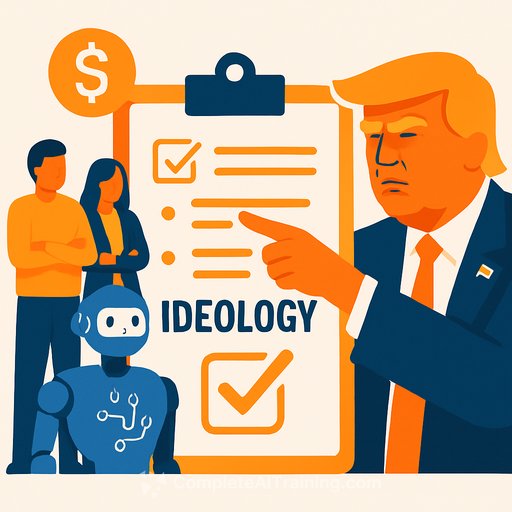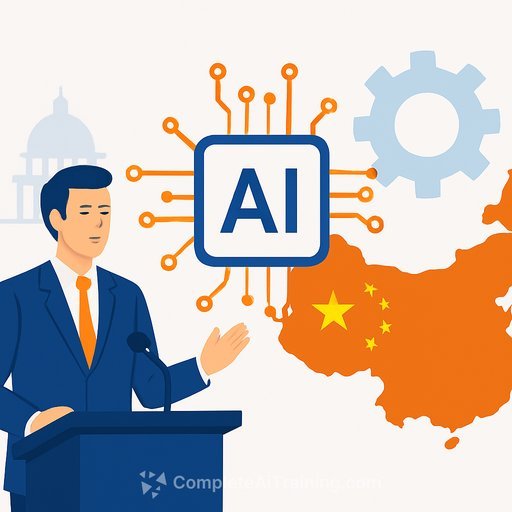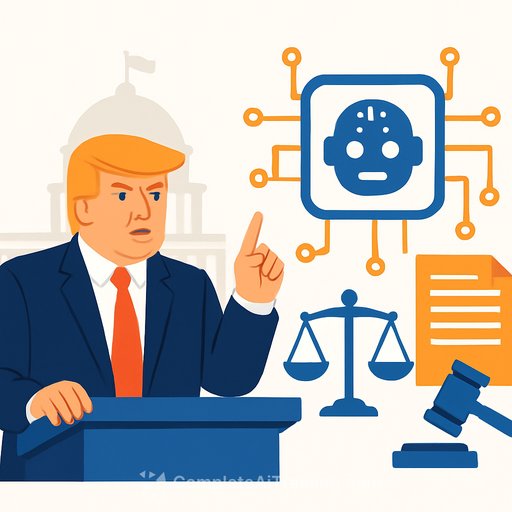Tech Companies Face New Regulatory Hurdle in AI Sales
Tech companies aiming to sell artificial intelligence technology to the federal government now encounter a new regulatory challenge: they must prove their chatbots aren’t “woke.” U.S. President Donald Trump’s recent executive order, part of a broader plan to counter China’s push for global AI dominance, emphasizes cutting regulations while embedding American values into AI tools used both at work and home.
One of the three AI executive orders signed targets “woke” AI in the federal government, marking the first time the U.S. government explicitly seeks to influence the ideological behavior of AI systems.
Trump’s AI Plan Prioritizes Deregulation
Leading AI language model providers like Google’s Gemini and Microsoft’s Copilot have largely stayed silent on the anti-woke directive, which is still under review before becoming part of official procurement rules. While the tech industry broadly supports Trump’s wider AI deregulation efforts, this specific order drags companies into a cultural debate they might prefer to avoid.
Civil rights advocates warn this move could disrupt ongoing efforts to reduce racial and gender bias in AI systems. These biases are well-documented and stem from the data AI models are trained on, which reflect human prejudices present online.
As one expert noted, “There’s no such thing as woke AI. There’s AI that discriminates and AI that works fairly for all people.” The challenge lies in the nature of large language models, which generate responses based on vast internet data that contain varied and conflicting social views.
Targeting Ideological Behaviour in AI
The executive order focuses on preventing the incorporation of diversity, equity, and inclusion ideologies—referred to as “destructive”—into AI models. This includes concepts like critical race theory, transgenderism, unconscious bias, intersectionality, and systemic racism.
This approach draws comparisons to China’s strict regulations ensuring AI reflects Communist Party values. However, the U.S. method differs by relying on disclosure rather than direct censorship or pre-approval of AI outputs.
Under Trump’s order, tech companies must disclose internal policies guiding their AI systems to demonstrate ideological neutrality. This creates pressure to self-censor and avoid controversial content to maintain government contracts.
The order also calls for “truth-seeking” AI, echoing language used by Elon Musk’s Grok chatbot. Whether Grok or other AI tools will gain favor under this policy remains uncertain.
Industry Reactions
With AI tools widely integrated into federal operations, companies have responded cautiously. OpenAI stated it awaits detailed guidance but believes its efforts to keep ChatGPT objective align with the directive.
Microsoft declined to comment, while Musk’s xAI praised the AI announcements but did not address the procurement order. Notably, xAI recently secured a U.S. defense contract despite controversies surrounding some Grok chatbot outputs.
Other major players like Anthropic, Google, Meta, and Palantir have not publicly responded.
The order reflects concerns raised by Trump’s AI adviser and some Silicon Valley investors, who criticized Google’s 2024 AI image generator for producing historically inaccurate and racially sensitive images. They allege these errors stem from deliberate efforts to impose social agendas within AI products.
One prominent venture capitalist claimed, “There’s override in the system that basically says, literally, everybody has to be Black,” referring to perceived ideological controls embedded in AI systems.
The order was reportedly drafted with input from conservative strategists opposed to diversity, equity, and inclusion initiatives, emphasizing the federal government’s refusal to purchase “WokeAI.”
What This Means for Government AI Procurement
Government agencies adopting AI solutions must now consider whether these technologies meet the new ideological neutrality requirements. Vendors will likely need to provide transparency about their AI development policies and demonstrate that their models avoid partisan or ideological biases.
This shift could alter procurement strategies and favor companies willing and able to comply with disclosure demands, potentially reshaping the AI vendor landscape in federal contracts.
For those working in government roles, understanding these regulatory changes and their implications will be crucial for managing AI adoption and procurement effectively.
To stay informed on AI compliance and training relevant to government professionals, explore the latest courses and certifications available at Complete AI Training.
Your membership also unlocks:






